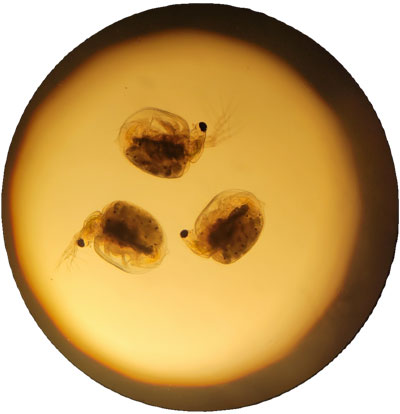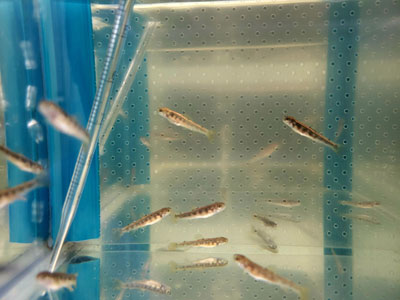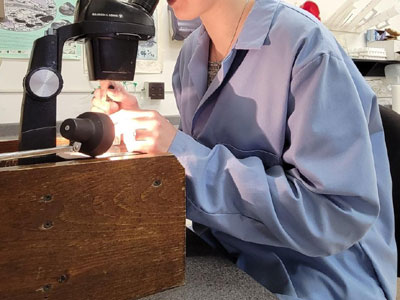Whole Effluent Toxicity Testing



What is Whole Effluent Toxicity (WET) Testing?
Whole Effluent Toxicity (WET) testing, under the National Pollutant Discharge Elimination System (NPDES) program, is a testing method used to assess the overall toxicity of a facility's wastewater discharge to aquatic life in a river, stream, lake or the ocean. It complements traditional chemical analysis by evaluating the combined toxic effect of all pollutants present in a treated wastewater effluent. WET testing is required by the Maine Department of Environmental Protection (MEDEP) and the U.S. Environmental Protection Agency (EPA) in many NPDES permits.
WET testing involves mixing samples of an effluent with samples of the receiving water for that particular effluent. The mixtures are done at various ratios of effluent to river water - such as 0% 10%, 20%, 50% etc. Live aquatic animals such as brook trout, rainbow trout, water fleas and sea urchins are then added to the tanks with the various mixtures under controlled environmental conditions to maintain dissolved oxygen, temperature etc. The end point of the test is to compare the survival, growth and reproduction of the aquatic animals in each tank to the control (the 0% effluent tank). The data are evaluated using a statistical procedure approved by the USEPA.
Whole Effluent Toxicity testing is used to evaluate the combined effect of all the elements and chemicals that may be present in a wastewater. Analyzed in conjunction with a standard battery of chemical tests, WET testing is required by regulatory agencies in many wastewater discharge permits to ensure a given waste stream is not posing a toxic threat to the environment. If a waste stream does demonstrate the potential for harm, WET testing can also be used as a tool to identify what may be the cause, as well as help evaluate potential solutions to the problem.
ClearWater offers acute and chronic WET testing of the following freshwater species:
- Ceriodaphnia dubia (water flea)
- Salvelinus fontinalis (brook trout)
- Oncorhynchus mykiss (rainbow trout)
- Americamysis bahia (mysid shrimp)
- Arbacia punctulata (sea urchin)


